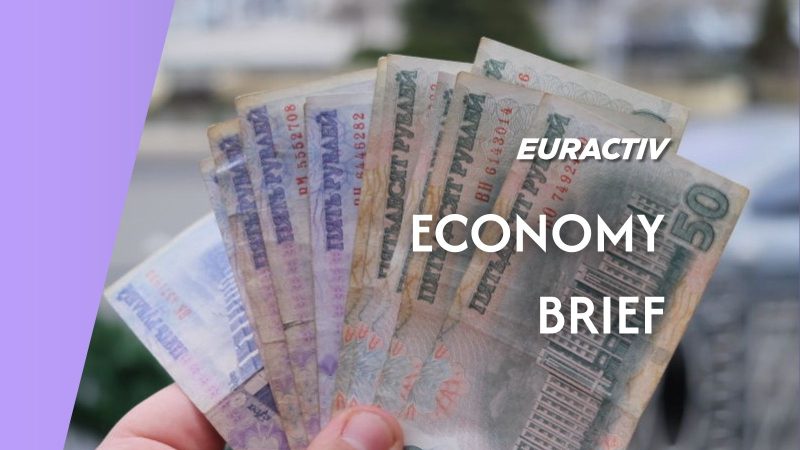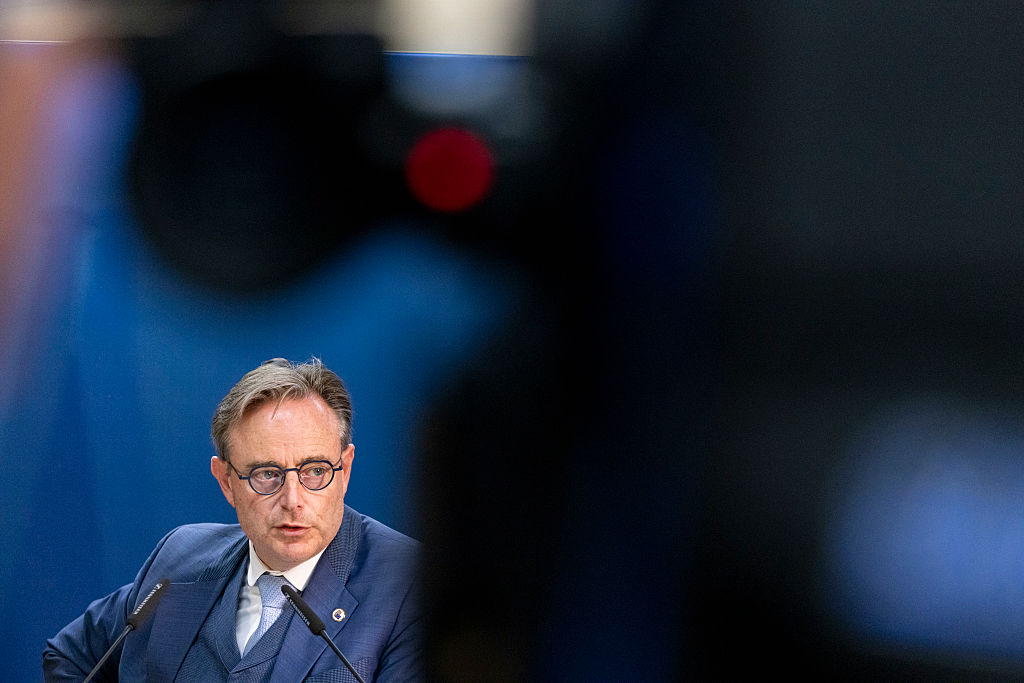COPENHAGEN – Belgian Prime Minister Bart De Wever said on Thursday that he would back the European Commission’s Ukraine “reparation loan” if concerns about the liability and legality of using frozen Russian assets held in Belgium are addressed.
“If we can find answers to every question – if the risks can be manageable – of course we can move on,” the Belgian PM told journalists, adding that he discussed his concerns with EU counterparts during their informal summit on Wednesday.
European Commission chief Ursula von der Leyen said the Commission had found a “legal[ly] sound way” of using immobilised Russian assets to create a reparation loan to Ukraine.
The “reparations loan” would channel around €140 billion to Ukraine, funded by cash drawn from frozen Russian central bank assets. Kyiv would only repay once Moscow covers post-war damages, effectively making Russia responsible for settling the debt.
The question of how and if to use frozen Russian assets remains a sticking point between the Commission and EU countries, especially Belgium, where around €170 billion are held. Reuters quotes Euroclear saying €194 billion.
Belgian is worried about the legality and the burden sharing of financial risks between EU countries to make sure Belgium would not hold the sole responsibility. Immobilised frozen Russian assets are also held in European countries outside of Belgium, mainly France, around €19 billion and Luxembourg, €10 billion, according to the European Parliament’s research service.
“I would like to know it before we go forward – who is going to embark on that boat with me? I’m already in the boat. There’s no escape for me,” De Wever said, moving away from more drastic comments that using the Russian assets “will never happen”.
“It’s absolutely clear that Belgium cannot be the only member state is carrying the risk,” von der Leyen said late last night. “The risks have to be put on broader shoulders.”
To confiscate or not to confiscate?
Disagreement between the EU executive and the Belgian PM on whether the immobilised assets would be confiscated or not remains.
Brussels is adamant that what they are planning is not confiscation as it “would not touch sovereign Russian assets” according to the Commission’s proposal.
“Ceci n’est pas une confiscation,” Wever said, referencing Belgian artist René Magritte. “But it is a confiscation. If I take your money and I use it, I think you will say that’s a confiscation.”
Yesterday, Moscow said it was ready to retaliate if the EU moved ahead to put the frozen assets out of Russia’s reach indefinitely.
EU countries need to unanimously agree on sanctions renewal and not return of assets to Moscow every six months – a risk Belgium would carry alone if a reparation loan for Ukraine based on the assets materialises without any other country signing up to share the liability.
Dude, where are my roubles?
Despite being a consumer, rather than producer, of alcoholic beverages, I actually share a surprising…
10 minutes

*Thomas Møller-Nielsen contributed reporting
(cs, vib)
